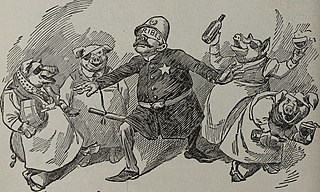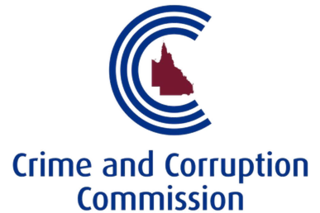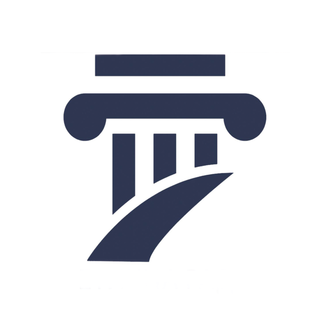 |
|---|
The Commissions and Independent Offices of the Kenya Government are created by Chapter 15 of the Constitution of Kenya or acts of Parliament [1]
 |
|---|
The Commissions and Independent Offices of the Kenya Government are created by Chapter 15 of the Constitution of Kenya or acts of Parliament [1]
The commissions are:
The following independent commissions created by acts of parliament:
Independent Policing Oversight Authority

Police corruption is a form of police misconduct in which law enforcement officers end up breaking their political contract and abusing their power for personal gain. This type of corruption may involve one or a group of officers. Internal police corruption is a challenge to public trust, cohesion of departmental policies, human rights and legal violations involving serious consequences. Police corruption can take many forms, such as bribery.

The National Assembly of the Republic of Kenya is one of the two Houses of the Parliament of Kenya. Between 1966 and 2013, it served as a unicameral house. In 2013, it became the lower house when the Senate was reestablished.

Corruption in the government of Kenya has a history which spans the era of the founding president Jomo Kenyatta, to Daniel arap Moi's KANU, Mwai Kibaki's PNU governments. President Uhuru Kenyatta's Jubilee Party government, and the current William Ruto's Kenya Kwanza administration has also been riddled with massive cases of graft.
The International Association of Anti-Corruption Authorities (IAACA) is an independent and non-political anti-corruption organization established at its inaugural Annual Conference and General Meeting held in Beijing, China in October 2006. The main objective of the organization is to promote the effective implementation of the UN Convention Against Corruption, adopted by the United Nations General Assembly on 31 October 2003, and to assist anti-corruption authorities in the world in preventing and fighting against corruption. Currently, over 140 ACAs from different countries and jurisdictions have joined IAACA as members.

The Crime and Corruption Commission (CCC) is an independent Queensland Government entity created to combat and reduce the incidence of major crime and to continuously improve the integrity of, and to reduce the incidence of misconduct in, the Queensland public sector. Formerly the Crime and Misconduct Commission (CMC) 2002–2014. The CCC also has a witness protection function. The commission was established on 1 January 2002, when the former Criminal Justice Commission and the Queensland Crime Commission were merged into a single entity under the name Crime and Misconduct Commission.

The National Anticorruption Directorate, formerly National Anticorruption Prosecution Office, is the Romanian agency tasked with preventing, investigating and prosecuting corruption-related offenses that caused a material damage to the Romanian state. The institution deals with the fight against high corruption offences, which have caused damage greater than €200,000 or if the object of the crime is property or sums of money amounting to over €10,000.
The Fiji Independent Commission Against Corruption (FICAC) is the country's mandated law enforcement agency to investigate and prosecute public sector corruption, as well as educate society on understanding and reporting corruption.

Kenya's National Police Service (NPS) is the umbrella law enforcement organ in Kenya. The service was established in 2011 under Article 243 of the Constitution of Kenya, following dissolution of Kenya Police Force and Administration Police Force.
The 10th Parliament of Kenya saw the National Assembly opened on 15 January 2008. This following the Orange Democratic Movement (ODM) of Raila Odinga winning a majority in the 2007 parliamentary elections. Raila was a candidate in the presidential elections, which resulted in a controversial victory for Mwai Kibaki of the Party of National Unity. The opening of the parliament was fraught with jeers, cheers and brawls between the opposing parties; Mwai Kibaki was greeted by the ODM members with silence and boos, while Raila was greeted by PNU members with accusations of genocide.
The Government of Kenya does not fully comply with the minimum standards for the elimination of human trafficking. In 2008 it was reported that Kenya's anti-trafficking efforts improved markedly over the reporting period, particularly through greater investigations of suspected trafficking cases. U.S. State Department's Office to Monitor and Combat Trafficking in Persons placed the country in "Tier 2" in 2017. Their efforts remain uncoordinated and lack strong oversight, creating an environment conducive to trafficking.
Aaron Gitonga RingeraE.B.S. is a Kenyan lawyer who served as a judge and as the former director of the Kenya Anti-Corruption Commission (KACC). He was born in Githongo, Meru.
An Inspector General of Police is a senior police officer in the police force or police service of several nations. The rank usually refers to the head of a large regional command within a police service, and in many countries refers to the most senior officer of the entire national police.

The Constitution itself anchors the role of the Director of Public Prosecutions in Kenya. The Office of the Director of Public Prosecutions (ODPP) is the National Prosecuting Authority in Kenya. The Constitution mandates it to prosecute all criminal cases in the country.

The Kenya Anti-Corruption Commission (KACC) was established in April 2003 to replace the Kenya Anti-Corruption Authority after Parliament enacted new legislation.

The Kenya Anti-Corruption Authority (KACA) of Kenya was established in 1997 after the amendment of the Prevention of Corruption Act in early 1997. The first director was John Harun Mwau who was appointed in December 1997. In April 2003, it was replaced by the Kenya Anti-Corruption Commission (KACC) which was subsequently replaced by the Ethics and Anti-Corruption Commission (EACC).

The Ethics and Anti-Corruption Commission (EACC) was established after Kenya’s President Mwai Kibaki signed the Ethics and Anti-Corruption Act on 29 August 2011. The EACC replaced the Kenya Anti-Corruption Commission (KACC).

John Harun Mwau is a Kenyan businessman and politician. He is the former Member of Parliament for Kilome Constituency. He was the first director of the defunct Kenya Anti-Corruption Authority but was removed after a year when a tribunal ruled that he was unfit to hold the office.

Corruption can take many forms, and can distort how public policy is made or implemented. This article discusses the responsibilities of the various agencies involved in combating corruption in Australia. While Australia is a wealthy democracy, over the decade since 2012, Australia's ranking in the Corruption Perceptions Index from Transparency International has slipped from 7th place in 2012 to 13th in 2022, where the country ranked first is perceived to have the most honest public sector. Additionally, there is a public perception that corruption in Australia is increasing. All states have broad-based anti-corruption agencies, and a national anti-corruption commission has been operational since July 2023.

Corruption in Azerbaijan is considered high and occurs at all levels of government. In Transparency International's 2022 Corruption Perceptions Index, which ranked 180 countries from those perceived to be least corrupt to those perceived to be very corrupt, Azerbaijan was ranked 128, compared to 45 for its northwestern neighbor Georgia and 58 for its western neighbor Armenia. In the Azerbaijani laundromat money-laundering scheme, $2.9 billion was paid to foreign politicians and Azerbaijani elites by companies linked to Azerbaijani ruler Ilham Aliyev, government ministries, and the International Bank of Azerbaijan between 2012 and 2014. Azerbaijan is a member of Group of States Against Corruption (GRECO) and OECD's Anti-Corruption Network.

The Ukrainian Ethics Council is a legal body of three Ukrainian and three international members created in 2021 to appoint members of the Supreme Council of Justice. Anti-corruption organisations AutoMaidan, Dejure, and Anti-Corruption Action Center criticised the council's June 2022 appointments as including "tainted" judges and for refusing a well-known anti-corruption judge and whistleblower, Larysa Golnyk.